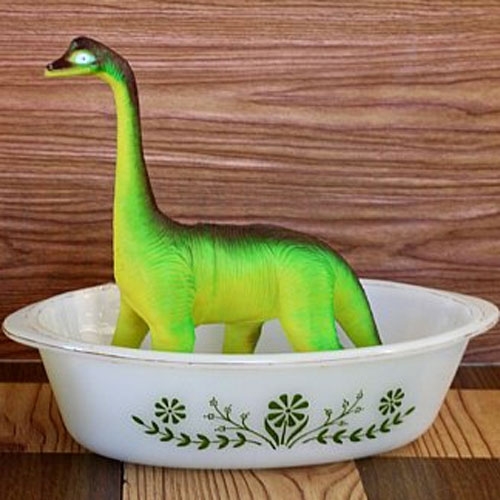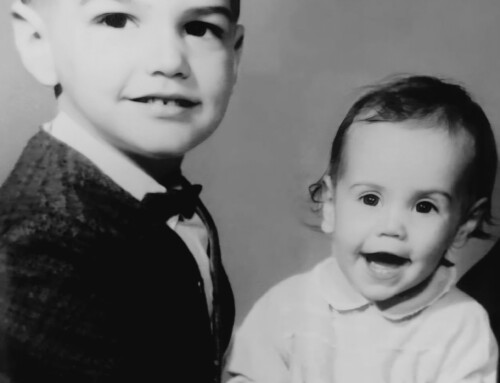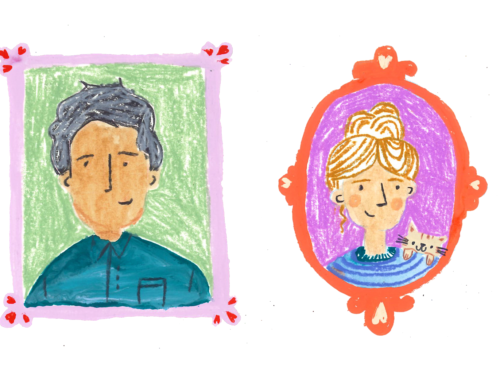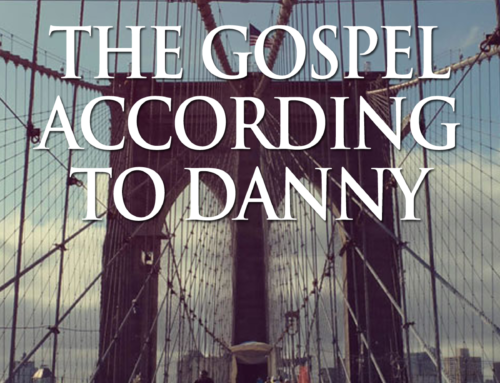Back when I left my marriage and was really missing my children, I would be their “babysitter” once in a while. It felt weird, because before the separation I had been an equal partner in their upbringing—waking up for feedings at night, cooking most of their meals, doing the shopping for them, changing their diapies. . . you know the drill. Then, suddenly, I was the babysitter. I mean, I get it: it was my choice to leave the marriage, so I’m not complaining here; in fact I was grateful for any opportunity to be with them. It was just weird, is what I’m saying. And because I am my Italian mother’s son, I expressed both my guilt and my concern for them through—what else?—food.
They were both fussy eaters, and they hadn’t been eating well since I’d left—Pillsbury cinnamon rolls or Eggo waffles in the morning, macaroni-and-cheese or Pizza Hut at night—so whenever I babysat them, I tried to give them nutritious lunches and snacks.
Caitlin, who wouldn’t knowingly eat vegetables if her life depended on it, could be tricked into eating them in soup, as long as tortellini was involved. Stephen would eat the soup too, as long as I told him there was a dinosaur at the bottom of the bowl. He’d slurp and slurp, gazing into the murky broth, trying to see through to the bottom, and halfway through, I’d point to something outside, or tell him there was a caterpillar on the floor, and as soon as he looked away, I’d take a tiny plastic dinosaur out my pocket and drop it in his soup. When he discovered it at the bottom of his bowl, he was completely stunned and happy, no matter how many times I had done it before.
Sometimes I put some chopped-up fruit in bowls and set the bowls on the floor, so they could eat like dogs. That’s how I got them to drink milk, too. Or I’d make milkshakes or smoothies and mix in some broccoli, spinach, or eggs. Whatever worked.
Stephen liked hot dogs, so I’d get the kosher all-beef kind and slice them up into pieces, like miniature hockey pucks. One day, while popping those into his mouth, he suddenly stopped, his eyes wide—he couldn’t breathe. I smacked his back, then tried to give him a mini-Heimlich, but what finally worked was picking him up, turning him upside down, holding him by ankles and pounding his back until the pink chunk of meat popped out.
The same thing happened to Caitlin, two weeks later, while eating spaghetti. She suddenly stopped chewing and looked at me the same way— eyes wide, mouth open. I saw a strand sticking up from her throat, wagging like an eel coming out of a hold in the coral reef. I reached in and pulled it out, the way a magician might yank a ribbon from his assistant’s ear. She coughed and cried, and then laughed as I held up the long noodle and scolded it for almost killing her.
For years I reminded them of these incidents, whenever I told them to eat slowly, to chew their food—Remember when you almost choked to death?—as if I wanted them to know that under the right circumstances, I could be their hero.
![]()






Leave A Comment